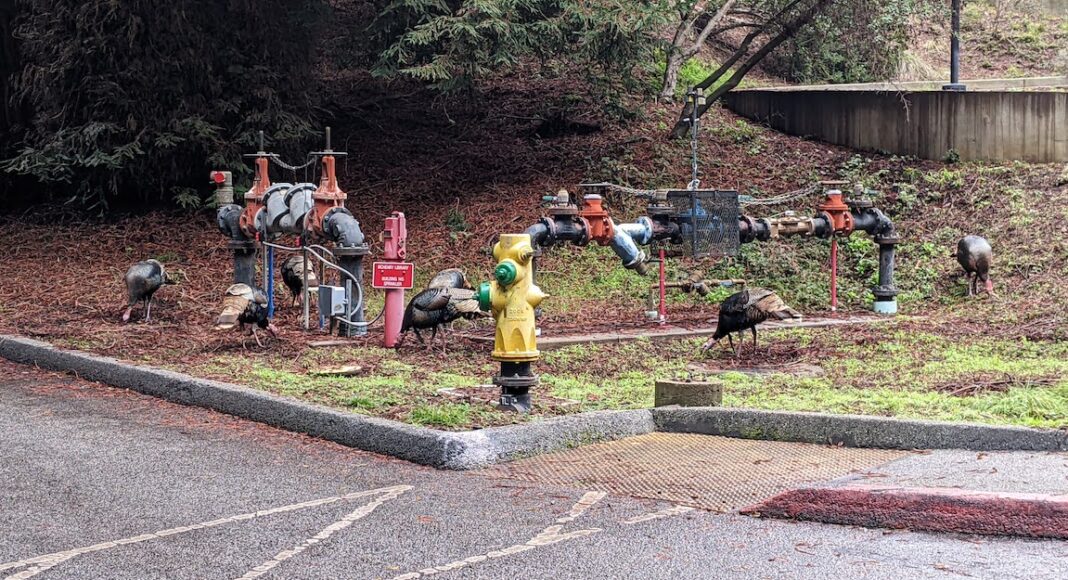by Thomas Sawano
As the pandemic rolls into its third year, online learning is still a drag—even at the university level. Student eyes are glazed over with permanent screen fatigue, and lectures that might have been inspiring in person don’t always come across the same way on a computer.
But with Covid-19 cases continuing to rise around the globe, does it make sense to bring students back on campus? UCSC has struggled with the question for months; despite offering about two-thirds of its courses in-person last fall, the university announced early this month that it would be postponing its resumption of in-person classes for the Winter 2022 quarter until Jan. 31. Previously, only the first two weeks of the term, until Jan. 17, were slated to be online.
The decision, said senior campus administrators, would allow students who live in university dorms and apartments to space out their arrival dates over the ensuing two weeks and would coincide with the date when all students in the UC system are required to have received a Covid-19 vaccine booster. The target date also lies beyond the point at which some epidemiological models say the current Covid-19 wave will peak in Santa Cruz County. All eight undergraduate UC campuses have adopted similar plans to resume in-person classes on Jan. 31.
“When we first announced remote instruction for the start of winter quarter, we expected to see an increase in positive cases,” said UCSC Chancellor Cynthia Larive in a statement sent to the student body on Jan. 6, “but the rate at which this variant is spreading requires us to update our plans.”
Testing at an on-campus facility run by molecular diagnostic company Fulgent Genetics resumed in earnest on Jan. 2, netting a positivity rate of about 5% averaged over the days leading up to the announcement. As of Jan. 20, the campus’s seven-day positivity rate is 5.10%, down from a high of 6.81% on Jan. 13—and well below the county’s overall rate, which sat at 13.1% on Jan. 18.
Students moving back onto campus are required to take Covid-19 tests within 48 hours before and after they arrive—and continue to test every two weeks if vaccinated, or every four days if not.
The idea, says university spokesperson Scott Hernandez-Jason, is to make sure that campus services remain operational, under the assumption that a certain number of students and faculty members will inevitably test positive throughout the quarter.
“We are recognizing that Covid is not going away,” Hernandez-Jason says. “Our objective right now is to make sure that we can keep the campus operational, which means avoiding having a critical mass of employees go out ill and need to isolate.”
Hernandez-Jason adds that in the weeks since the Jan. 6 announcement, the campus has expanded the number of beds it maintains for students isolating after positive test results from about 200 to 250, and will soon hire an additional firm to bolster its testing capacity.
But on a practical level, what the move back in-person will look like remains uncertain. In a Jan. 19 email sent to UCSC faculty and teaching assistants, campus executive vice chancellor Lori Kletzer outlined a process where instructors could petition to keep their courses remote for the remainder of winter quarter if they are in a group particularly vulnerable to Covid-19 infection. Kletzer said that department chairs would announce what courses would continue to remain remote by Jan. 28, unless stated otherwise.
This leaves many of UCSC’s approximately 17,000 undergraduates—about half of whom live on-campus—with more questions than answers about how Winter 2022 will shape up. Derek Tran, a second-year psychology major and education minor, moved to Santa Cruz earlier this month after having solely attended online lectures for the past year and a half. So far, the experience hasn’t been rewarding for him.
“You know, I’m a sophomore now, and so I should have an idea of what I really want to be studying,” Tran says. “I came into college to figure that out, but going to classes online hasn’t been a great venue for that.”
Tran is one of a handful of undergraduates currently being housed by the university at hotels in downtown Santa Cruz while they quarantine or isolate. The experience has been isolating, to say the least; he said that it’s been impossible to make friends through his remote lectures. He was optimistic about having a more normal college experience for the first time this quarter, but is much more apprehensive now, after all the changes.
“Being here but not having classes in-person is kinda like being behind a glass wall, if that makes sense,” Tran says. “But having to go in-person midway through the quarter, that seems like it would be pretty overwhelming for me.”













